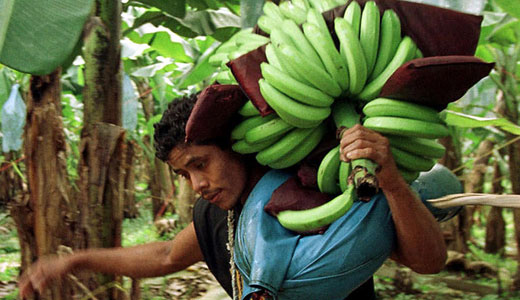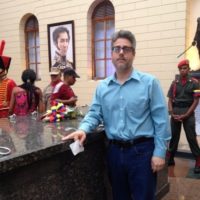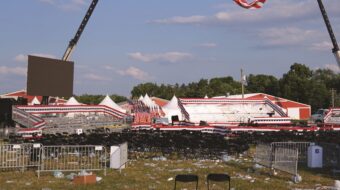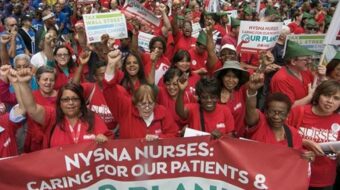
Chiquita Brands International, Inc. has lost a case in U.S. District Court in which it attempted to block the Securities and Exchange Commission (SEC) from releasing documents relating to its payments to a Colombian terrorist group.
These documents have been sought from the SEC by the National Security Archive under the Freedom of Information Act.
As Michael Evans of the National Security Archive explains, the documents being sought will hopefully reveal, as some other Chiquita documents in the past, that Chiquita’s claims that it paid the United Self Defense Forces (AUC) paramilitaries merely because it was being extorted to do so are not true.
As Evans explains, Chiquita has long maintained that the payments were the result of extortion, and the sentencing memo states that the company had never received “any actual security services or actual security equipment in exchange for the payments.”
Nevertheless, Chiquita records produced by the U.S. Department of Justice in response to similar Archive FOIA requests reveal that the company did, in fact, receive some security services in return for its payments. “Money for info on guerrilla groups,” read one Chiquita memo, written in March 2000. “Can’t get the same level of support from the military.”
In a 1994 memo, the general manager of Chiquita operations in Turbó admitted that guerrillas were “used to supply security personnel at the various farms.” Company lawyers were understandably concerned.
Evans hopes that more such revelations will be discovered in the yet unreleased documents the National Security Archive is seeking.
Quite possibly, the documents might also show that Chiquita continued to funnel payments to the AUC through a closely-related corporate entity for a longer period than hitherto believed. Indeed, this is the conclusion reached by a recent report by Colombia’s Interchurch Justice and Peace Commission (IJCP).
In this report, the IJCP focuses on a company known as Banacol which succeeded Banadex, the former subsidiary of Chiquita which pled guilty to paying paramilitary death squads $1.7 million between 1997 and 2004, and supplying them with 3,000 AK-47s.
As IJCP pointedly relates, Banacol is not just the successor to the Colombian fruit business of the Chiquita subsidiary, but also to its business of propping up the death squads. And indeed, this was all by design. As IJCP’s report explains:
Chiquita put forward a ‘sales’ operation of the questionable Banadex to the transnational Banacol Marketing Corporation at a far below market price (fire sale). Banadex, a subsidiary of Chiquita that has worked in Colombia since 1989, was transferred to Banacol (Banacol Marking Corp. SA based in Panama), in the year 2004, just when the United States Justice Department gave notice of its investigations.
IJCP further explains that Chiquita, which claimed to abandon its Colombian operations after the terrorist-payment scandal, entered into an agreement with Banacol through which Banacol would continue “to sell Chiquita pineapples and bananas at a particularly advantageous price for an initial period of eight years.”
The IJCP, citing the Colombian Attorney General, explains that Banacol “continued paying millions between 2004 and 2007 to the security cooperatives that are facades for the self-defense groups” (aka, paramilitary death squads). IJCP states, “That is to say, it continued backing the trail of violence of its predecessor.”
Citing former AUC paramilitary leader Salvatore Mancuso, IJCP explains that other companies, including Dole and Del Monte, also financed the paramilitary groups that continue to plague the Colombian countryside.
The results of this support – beginning in the mid-1990’s when these banana companies began bankrolling the death squads, and continuing until the present time – have been horrifying. As IJCP details:
Paramilitaries, with the complicity and lack of action by the [U.S.-backed] 17th Brigade and Uraba Police, assassinate, disappear, torture and displace local inhabitants, while claiming to fight the guerilla. Businessmen associated with these criminal structures appropriate the territories that traditionally belong to the Afro-descendant communities; authorities at the service of the businessmen try to legalize this fraudulent land-grab; and the national government supports more than 95 percent of the illegal investment. This leads to oil palm agribusiness being implemented on the ruins of the communities’ homes, cemeteries and communal areas.
It provides the foundation for large-scale cattle ranching and transnational plantain, banana, pineapple and cassava production, which are all increasing at the hands of the paramilitaries. These violent structures see the opportunity to expand the agricultural production onto the high quality soil, which will gradually replace the depleted soils of Antioquian Uraba. The paramilitaries also see the opportunity in these territories due to their demonstrated reserves of gold, copper, molybdenum and other minerals and for the opportunities to construct infrastructure for exportation.
The documents which the SEC will hopefully produce after Chiquita’s recent court loss will probably reveal even more about the nature, extent and duration of Chiquita’s support for right-wing death squads in Colombia. It is little wonder, then, that Chiquita has been fighting so hard to keep these documents from public view.
Daniel Kovalik teaches international human rights at the University of Pittsburgh School of Law.
Photo: A Colombian worker picks bananas for Chiquita. AP












Comments